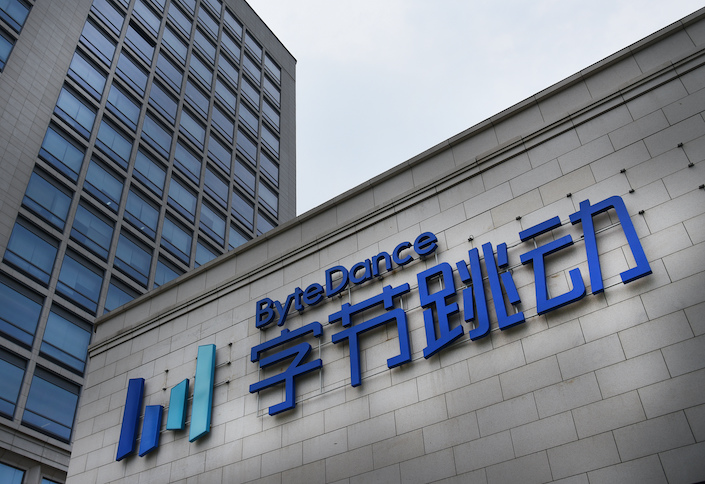Two Chinese Short-Video Giants Consider Hong Kong IPOs

Two of China’s most popular short video apps are planning initial public offerings to raise billions of dollars in Hong Kong, according to people familiar with the matters.
ByteDance Ltd., parent of TikTok and its Chinese version Douyin, is considering listing its Douyin unit in Hong Kong in the first half of 2021, people close to the Beijing-based company told Caixin Monday. The offering size was not disclosed.
Tencent-backed Kuaishou is also preparing to file for an IPO with the Hong Kong Stock Exchange by the end of this year, according to people close the company. Douyin and Kuaishou together dominate China’s short-video market.
Kuaishou plans to raise $5 billion from the offering, valuing the company at $40 billion to $50 billion, Caixin learned. It picked Bank of America Merrill Lynch, China Renaissance and Morgan Stanley as underwriters. ByteDance approached Goldman Sachs for the Douyin IPO, people close to the company said.
In the second half of 2019, ByteDance’s shares changed hands in private equity markets at prices giving the company an implied valuation of between $90 billion and $100 billion. Douyin generated revenue of 60 billion yuan to 70 billion yuan ($9 billion to $10.4 billion) in 2019, contributing more than half of ByteDance’s revenue.
Even though ByteDance faces setbacks abroad with its TikTok version of Douyin under attack in various markets, its Chinese short-video apps and rivals are thriving and reshaping the content market in a country of 1.4 billion people.
As of June, China had 818 million short video users, who watch an average of nearly two hours a day on Douyin, Kuaishou and other short-video platforms, according to an industry report released by China Internet Audio & Video Convention.
Douyin claimed more than 600 million daily active users as of August, and Kuaishou reported it hit its target of 300 million daily active users early this year. The two apps attract different groups, though many users have registered accounts with both apps.
Douyin wins more favor with female users, while Kuaishou appeals more to male users, the industry report found. Douyin users are mainly millennials from first-tier cities with high school diplomas or above, while Kuaishou targets younger audiences in smaller cities and rural areas.
Contact reporter Denise Jia (huijuanjia@caixin.com) and editor Bob Simison (bobsimison@caixin.com).
Download our app to receive breaking news alerts and read the news on the go.

- PODCAST
- MOST POPULAR






